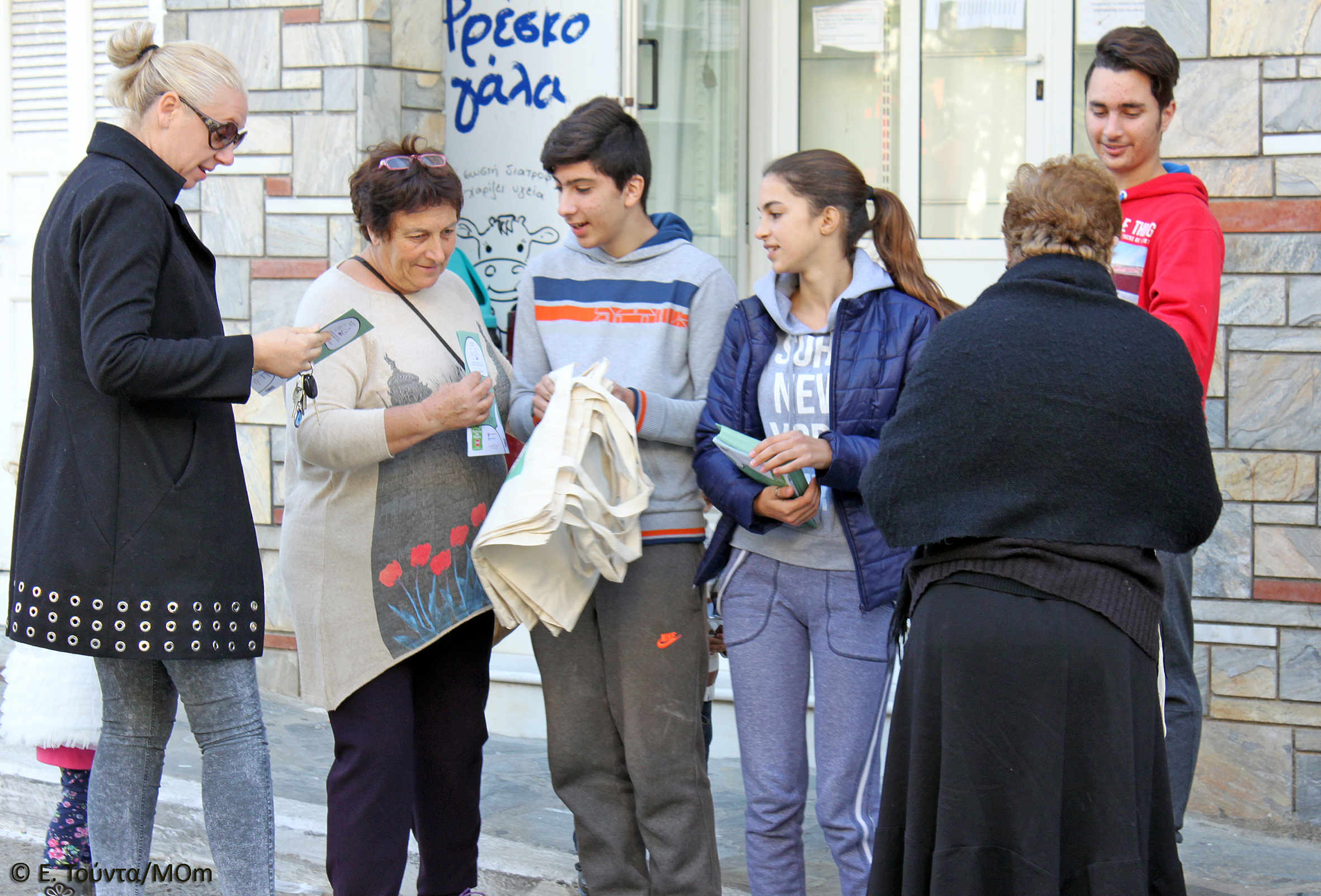History and Facts
Alonissos is a small island of Northern Sporades, Greece. It hosts a marine park of 2.260km2, the largest marine protected area in Europe, which shelters a significant number of monk seals, a critically endangered species according to the IUCN red list. Dolphins and other cetaceans are also observed around the island.
Piperi island (belongs to the Alonissos island municipality) is the heart of the Marine Park and therefore, a strictly protected area. It is the most important nature reserve of the Mediterranean monk seal and many raptors that live and reproduce on its steep cliffs. At some 400–500 remaining monk seals, almost 1/4 of their total population is found in the area. The island also hosts up to 33 bird species and approximately 350 to 400 pairs of Eleonora’s falcon (Falco eleonorae).
Due to its well preserved ecosystem, the island of Alonissos is an ideal place for the realization of alternative tourism activities. Visitors have the opportunity to try scuba diving, photography, trekking and swimming expeditions. The National Marine Park of Alonissos plays a significant role in the sustainable development of the island, providing new job opportunities and supporting local traditional professions.
Considering the high environmental importance of Alonissos, Thalassa Foundation is undertaking a number of projects under the “Blue Alonissos” umbrella in order to safeguard the area’s ecosystem and to maintain its unique natural reserves under a socio-economic perspective that benefits and involves local communities to the achievement of more sustainable ways of development.
The “Plastic-Bag-Free Alonissos” Project:
Europeans use about 100 billion plastic carrier bags every year. Around 90% of these are lightweight bags, often used only once. Lightweight plastic bags are particularly prone to becoming marine litter since they are seen by consumers as single-use. However, using a highly persistent material for a single-use disposable item, not only has environmental or economic impacts, but it affects human health as well. Lightweight plastic bags are easily blown by the wind into drains, and through water courses, end up to the sea. Discarded bags can be especially harmful in the marine environment, where animals may die after becoming entangled or mistaking them for food. In time, each bag dissolves into thousands of plastic particles can also become toxic pollutants, which may harm organisms that ingest them, and ultimately enter the food chain.
A recent study that assessed marine litter on the seafloor of three gulfs in Greece, reflects the severity of the issue. The majority of items found were made of plastic and half of them (49,6%) were bags (Ioakeimides, 2014). European Legislation is in line with plastic bag use control. More specifically, according to a new European Directive, 2015/720, Member States are required to reduce the use of plastic carrier lightweight bags significantly the next few years.
THALASSA Foundation aims at reducing the consumption and disposal of plastic bags and mitigating the environmental impact that they cause to Alonissos, the home of the Mediterranean monk seal.
More specifically, the project entails:
- Distribution of 2,000 shopping bags made of 100% cotton to local households (with volunteers’ participation).
- Extensive use of a broad range of information/sensitization tools.
- Undertaking of actions in pupil training, teacher workshops, voluntary beach cleaning, as well as participatory workshops with local organisations.
Apart from this, Thalassa is about to promote a wide range of awareness-raising actions, including educational activities for students, seminars and workshops for teachers, and other participatory processes involving local bodies. To achieve this, the Foundation collaborates with two well-established organisations, who act as project managers:
1. The Mediterranean SOS Network and
2. MOm (The Hellenic Society for the Study and Protection of the Monk Seal)
Both organisations have significant experience in environmental projects. Furthermore, Thalassa Foundation has gained the support and cooperation of the Municipality of Alonissos, which is actively involved in this project and any follow-up actions.
Action against plastic pollution has already been taken. During early October, Thalassa supported three voluntary cleanups in Alonissos and in the two neighboring islands, which are part of the National Park of Northern Sporades (NMPANS). Participants were people from the local community, students and representatives of the project’s partners. A considerable volume of marine litter (5.500 liters), most of which was plastic, was collected and recorded according to litter-monitoring protocols developed by the Laboratory of Marine Geology and Physical Oceanography of the University of Patras, Greece. This first group of actions also included a school cleanup with the participation of 100 students and their teachers (kindergarten and elementary schools of Alonissos).
Last but not least, as such projects are based on mentality change and therefore long-term active involvement of the local community, recently, representatives of Thalassa, MOm and MedSOS had the opportunity to meet with businessmen of the island. The discussion that followed was quite encouraging for the project’s future success, since local shop keepers welcomed the idea of replacing single use plastic carrier bags. In fact, some of them have taken action already for the replacement of plastic bags with reusable ones.

A milestone of this effort was today, December 1st, 2015, when the 2,000 cotton bags were distributed to shops along with the informational leaflet, while posters were placed at the entrance of many shops to alert consumers. Also, many grocery store owners who had already produced their own cotton bags started offering them today to their customers for a small charge, while they discontinued offering plastic ones.
The project has gained publicity and we’ve had substantial positive feedback, with more Greek islands expressing interest in adopting similar practices against plastic bag pollution. We’d like nothing more than seeing the project replicated in other islands and/or finding “sister” projects for the island of Alonissos.
Media:
Plastic Bag Free Alonissos Facebook
https://skopelosnews.wordpress.com/2015/10/11/alonissos-says-no-to-plastic-bags/